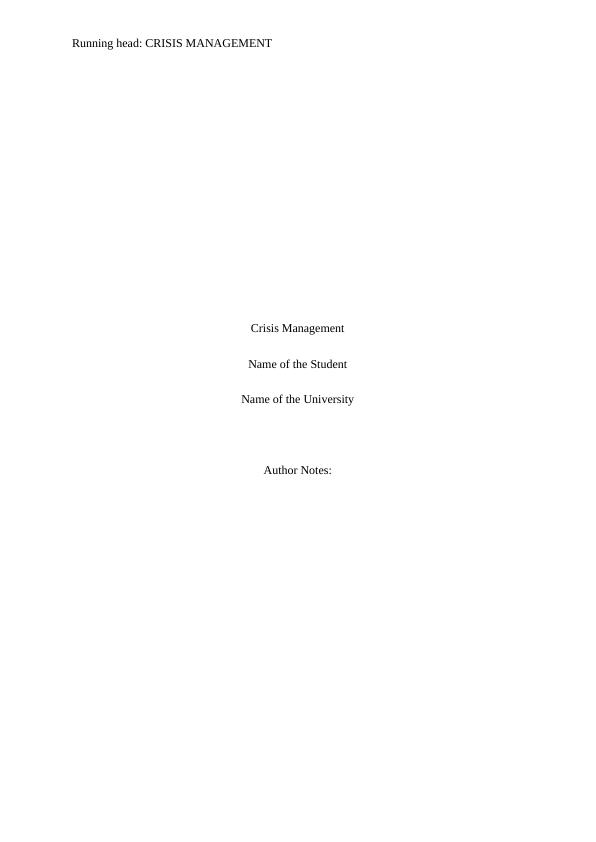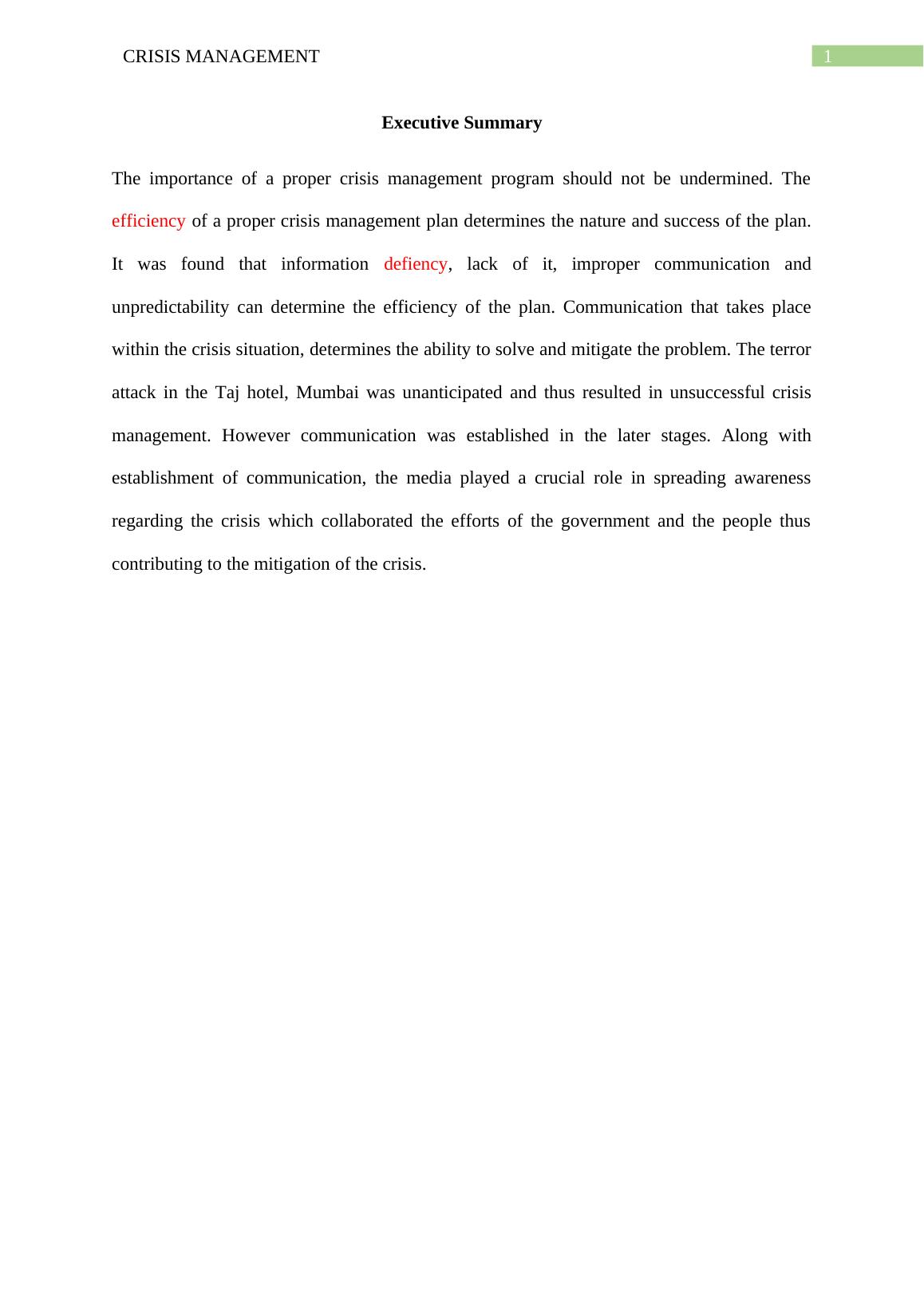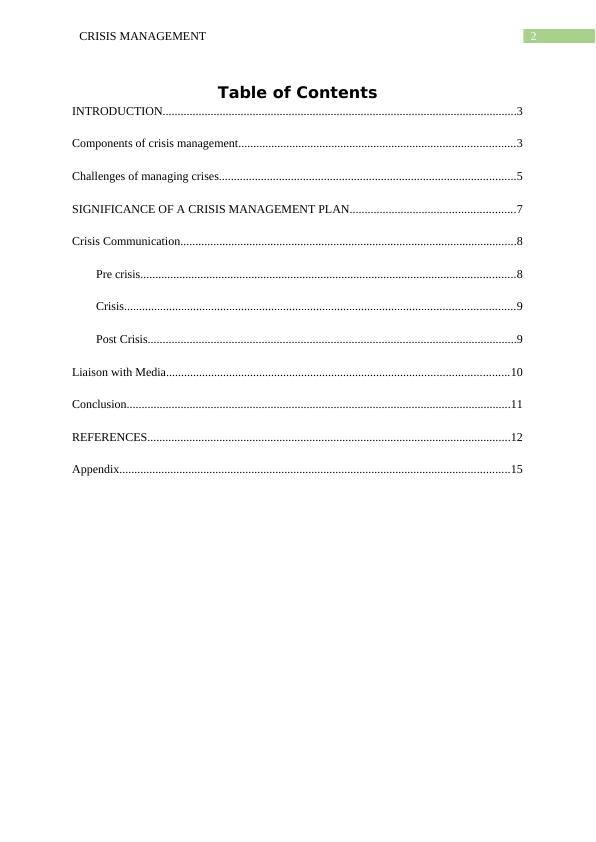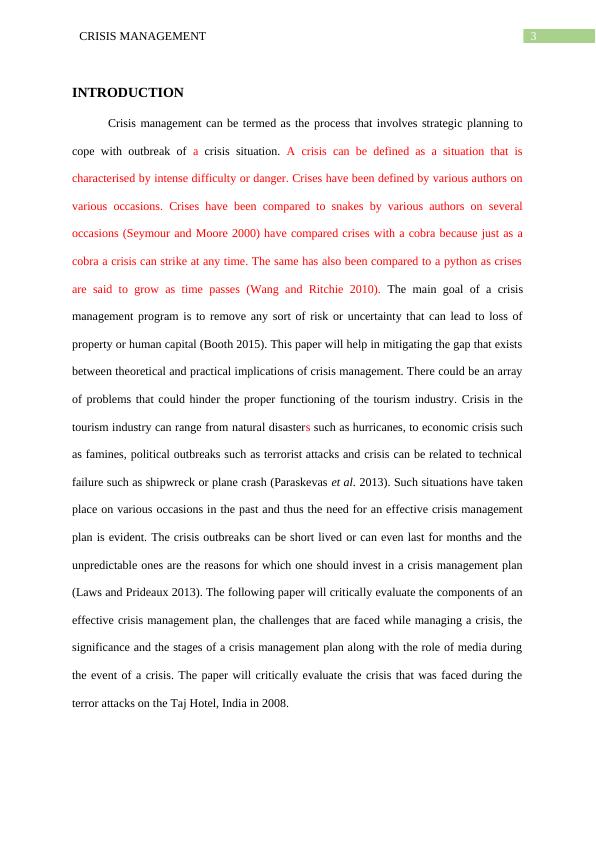Crisis Management
Developing an understanding of the strategic and holistic approach to crisis management for the tourism industry, focusing on a range of crises from natural disasters to human influenced crises such as acts of terrorism and technical failure.
17 Pages4213 Words165 Views
Added on 2023-04-20
About This Document
This article discusses the importance of crisis management, its components, challenges faced, and its significance in maintaining business sustainability. It also explores the case of the Taj Hotel terror attack in Mumbai as a real-life example.
Crisis Management
Developing an understanding of the strategic and holistic approach to crisis management for the tourism industry, focusing on a range of crises from natural disasters to human influenced crises such as acts of terrorism and technical failure.
Added on 2023-04-20
ShareRelated Documents
End of preview
Want to access all the pages? Upload your documents or become a member.
Crisis Management in Tourism
|24
|6118
|489
Tourism Crisis and Disaster Management : Assignment
|8
|1949
|80
Crisis Communication And Organizational crises
|4
|1174
|15
Managing project management knowledge
|9
|2052
|17
Improving Public Health Informatics
|7
|1622
|84
Improving Public Health Informatics - Assessment
|9
|1466
|462




